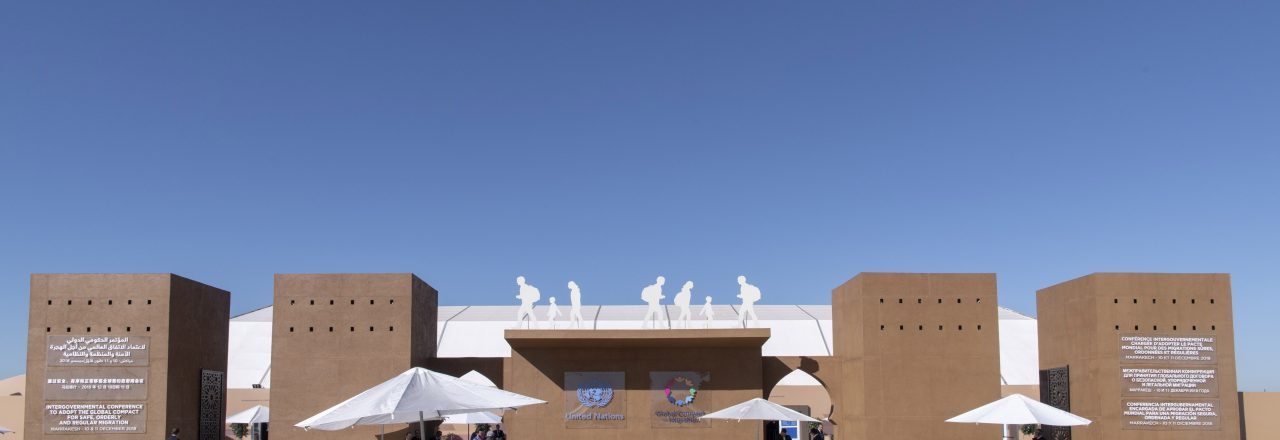
Global Compact for Migration Agreed in Morocco despite major withdrawals
The UN Global Compact for Safe, Orderly and Regular Migration (GCM) was agreed on Monday 10 December at an intergovernmental conference held in Marrakech, Morocco. Leaders from more than 150 countries agreed to sign the migration pact that sets a roadmap despite withdrawal from the US, Australia, the Netherlands, Austria, Bulgaria, Hungary, Czech Republic, Poland, Dominican Republic, Chile, Latvia, Slovakia, Estonia and Italy, and even though the GCM has no interference in internal policies or laws as it is not hard international law but a non-legally binding, cooperative framework. Its aim is to reduce the risks and vulnerabilities the migrants face at different stages of their journey while setting some rules at State level to regularize flows. It introduces some breakthroughs, as it encourages nations to ensure migrants affected by climate change have access to humanitarian assistance; it stresses countries to reaffirm their commitment to protecting the human rights of migrants and refugees “regardless of their migration status”; and recognises that migration is a “source of prosperity, innovation and sustainable development”. On the other side, at the State level, it aims to regularize migration flows. More precisely, objective 5 and objective 11 of the final GCM text seek to enhance availability and flexibility of pathways for regular migration, and to manage borders in an integrated, secure and coordinated manner. Antonio Guterres, UN Secretary-General, opened the session stating: “this moment is the inspiring product of dedicated and pain-staking efforts”, and added that “national policies are far more likely to succeed with international cooperation”. The UN General Assembly will have to formally adopt a resolution endorsing the deal on December 19 in New York.
- The Euromed news are edited by the team of the Euro-Mediterranean Policies Department of the European Institute of the Mediterranean -


